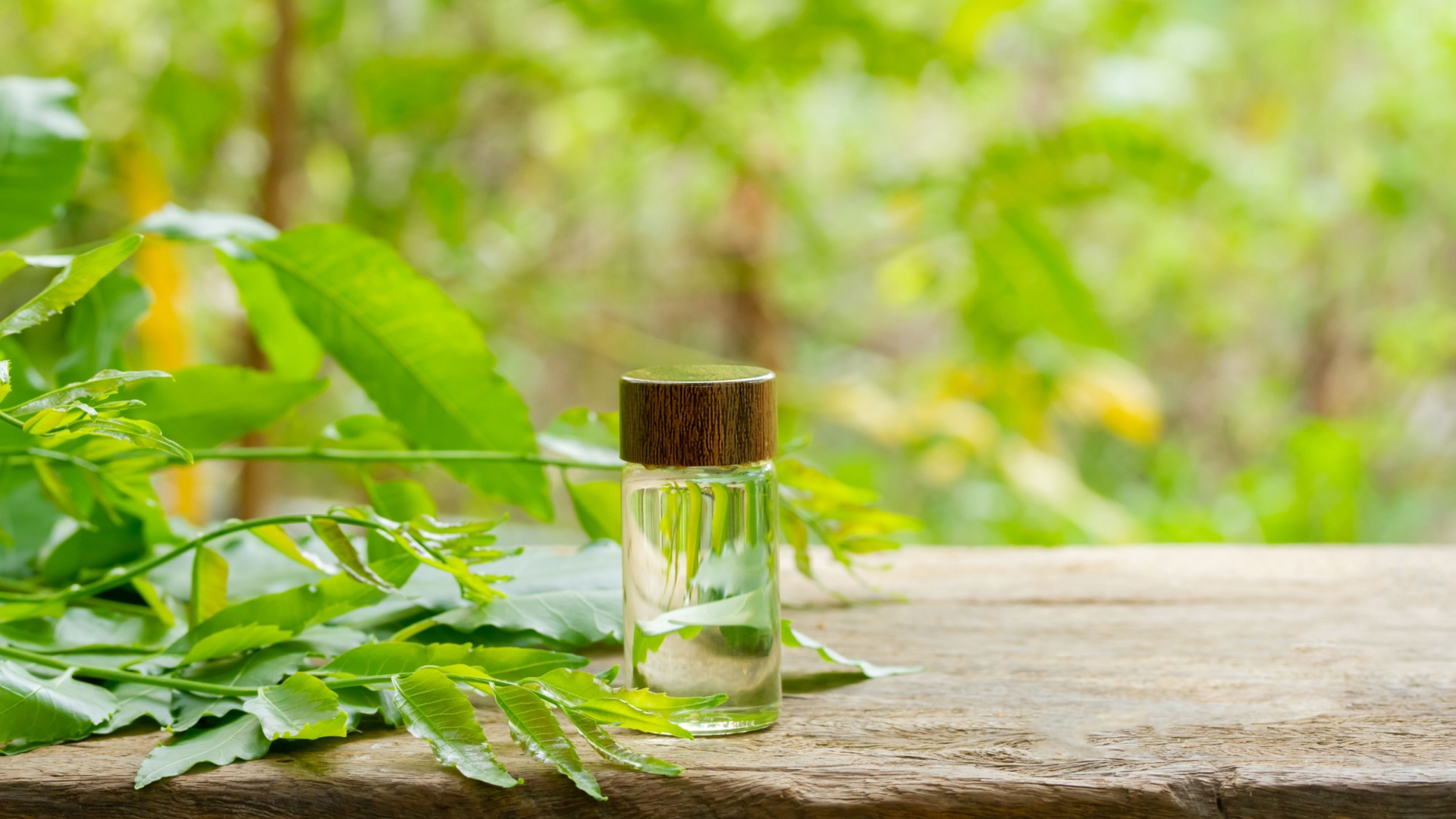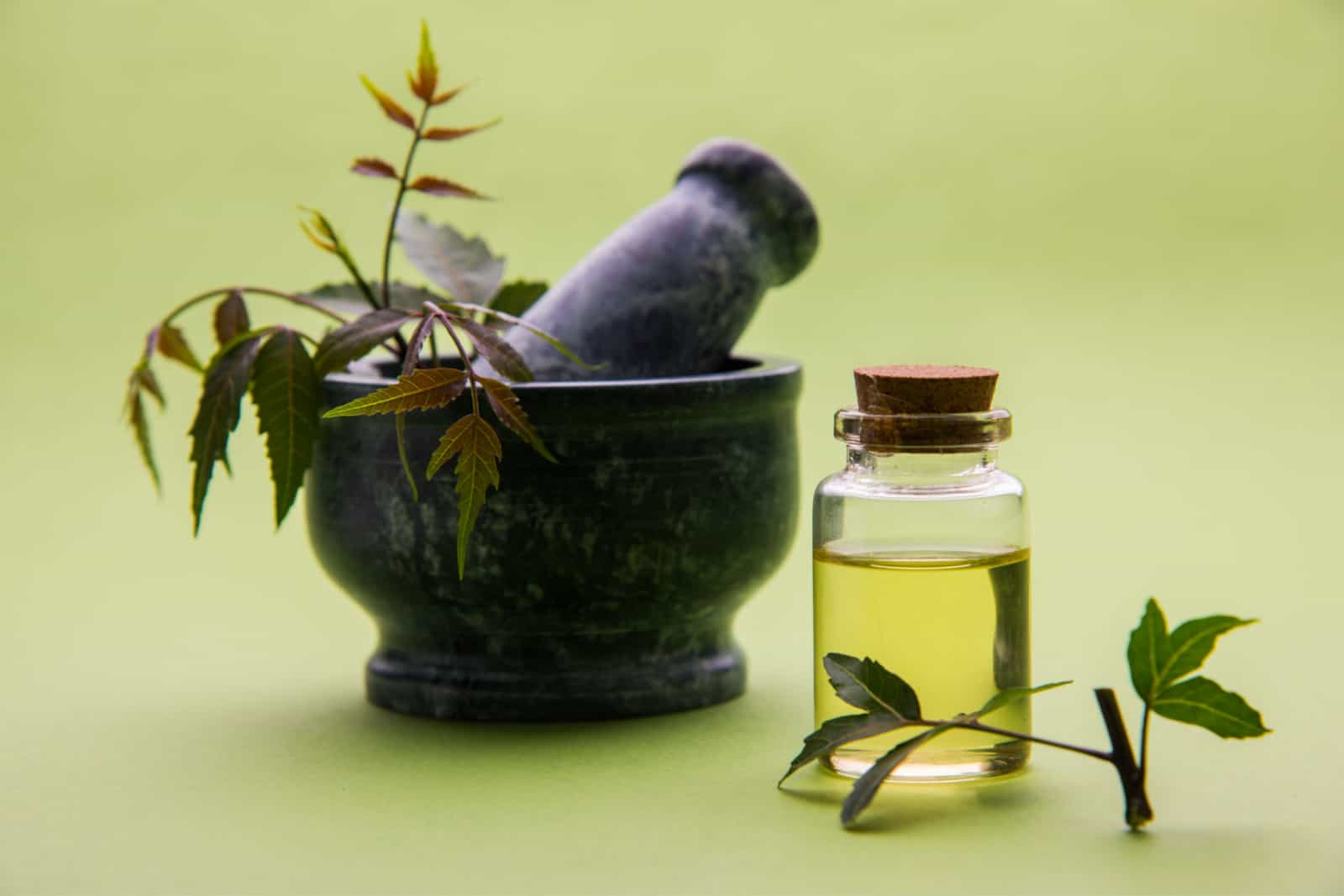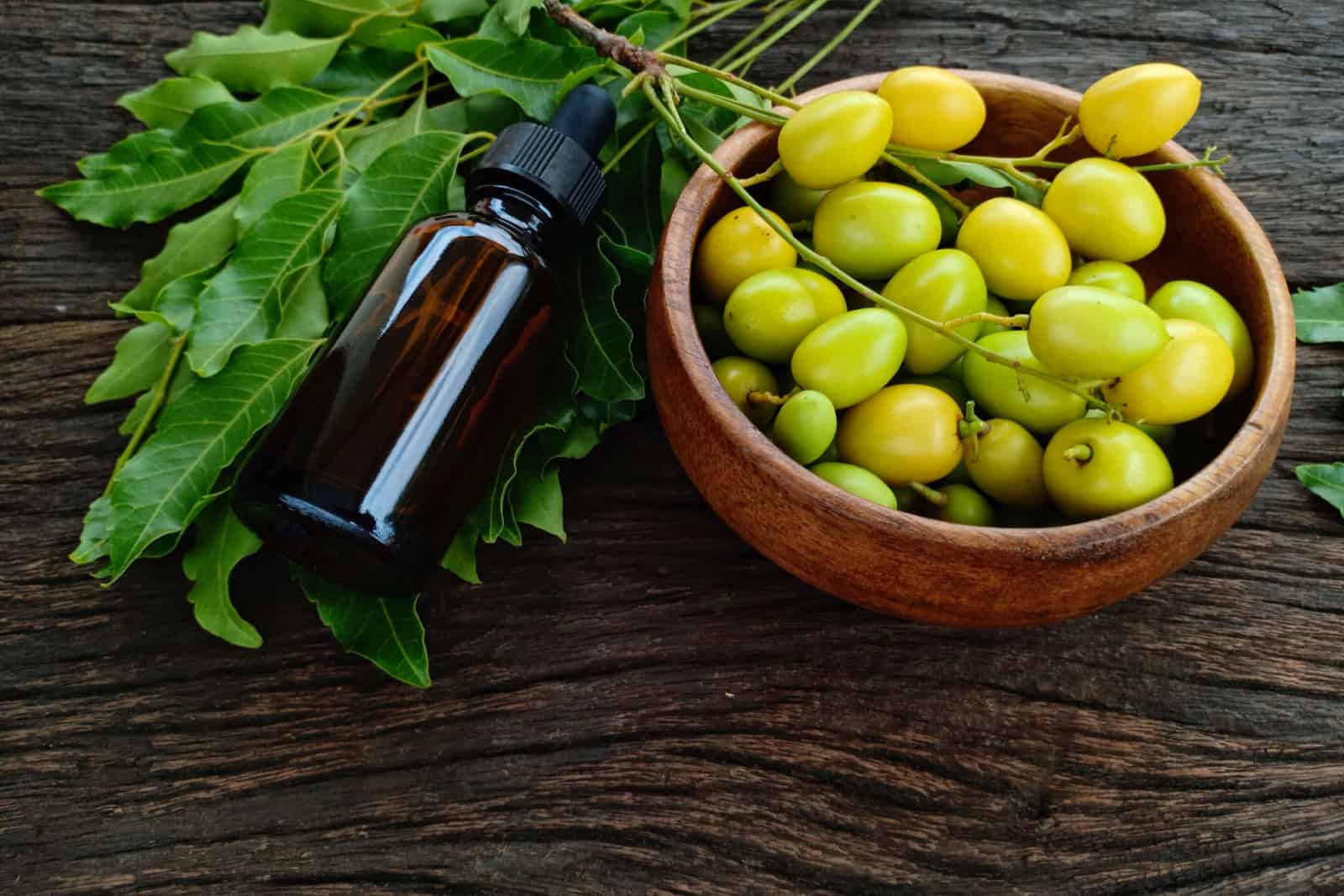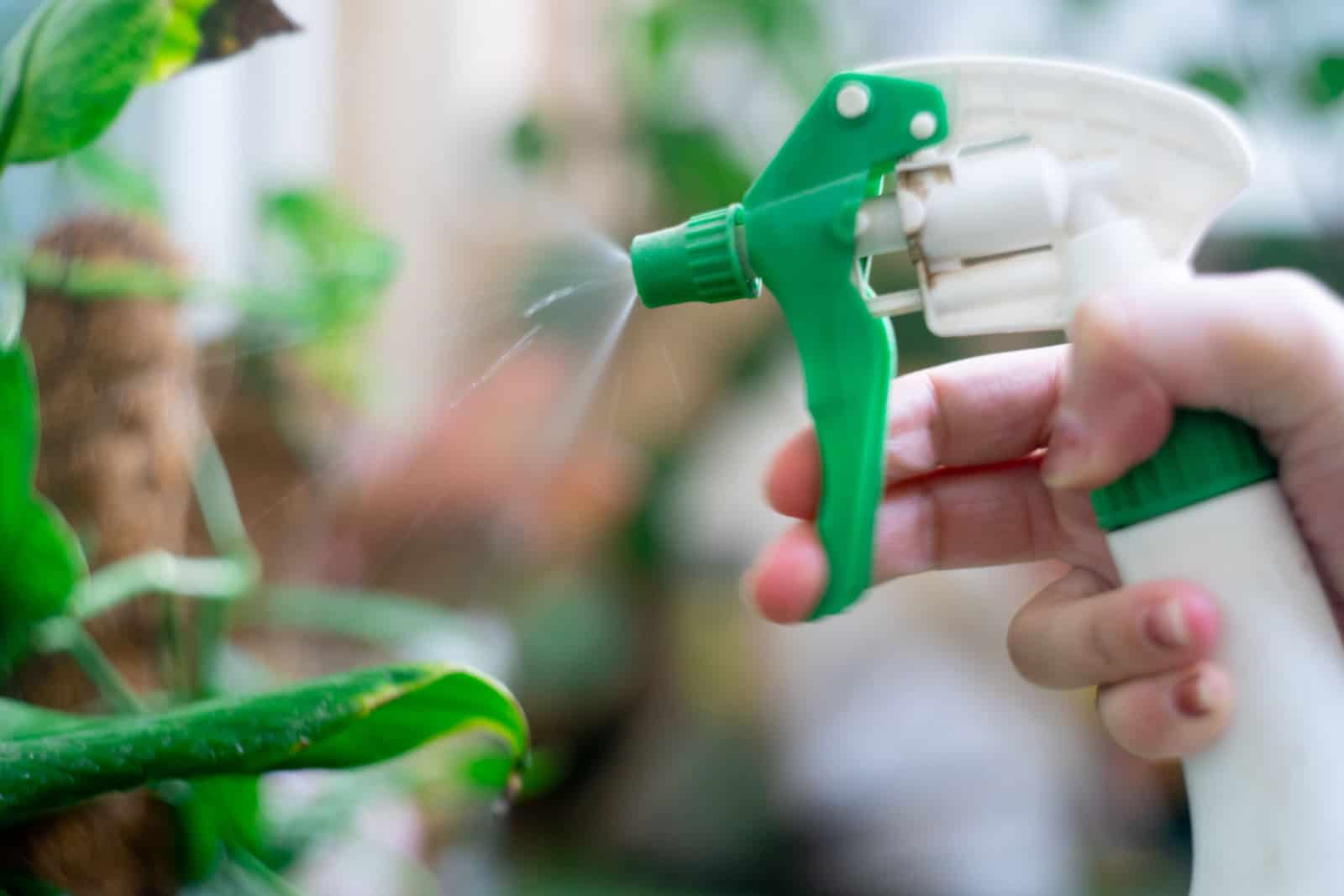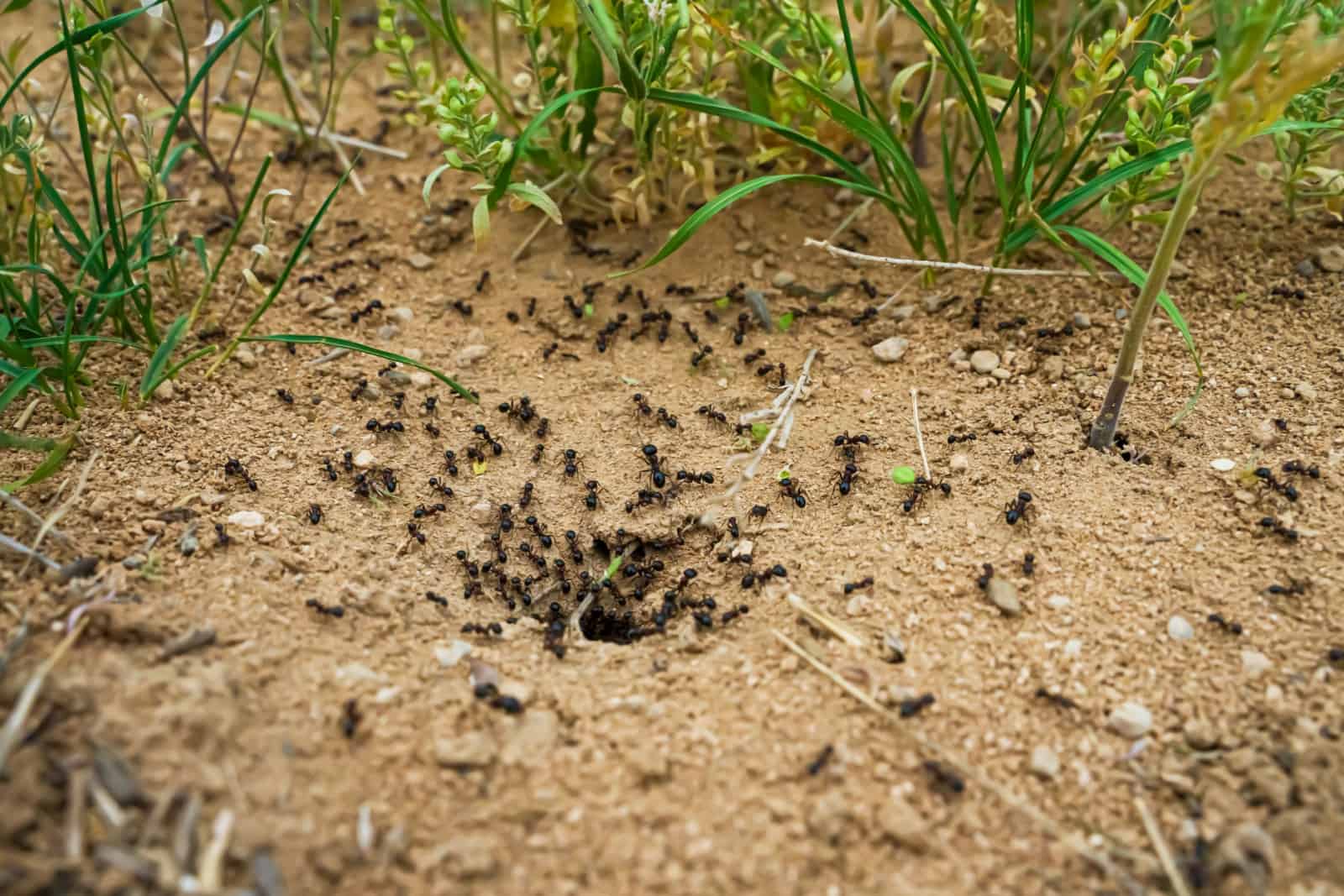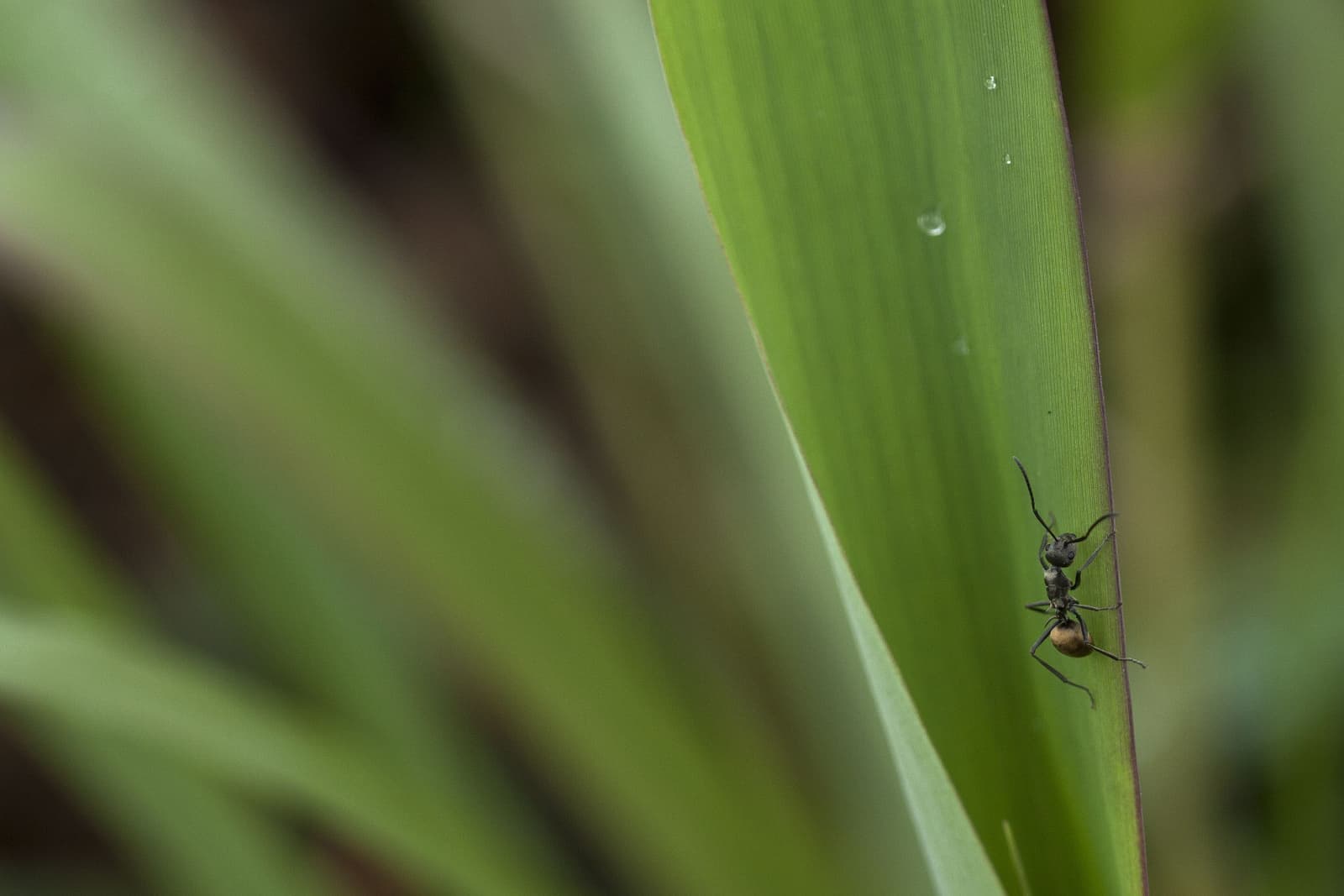With over 10,000 different ant species out there, it’s pretty normal to see them in your garden. These little creatures are hard workers and good for improving soil aeration and drainage.
Still, there is another side to the ant infestation story – an abundant ant population can harm plant roots and leaves. They are also in cahoots with pests such as aphids and mealybugs, and these pests can significantly damage your plants!
When dealing with any kind of infestation, I always try eliminating pests or insects with an organic solvent, which is why I am going to talk about using neem oil for getting rid of ants.
If you need to know an answer to the question, does neem oil kill ants? Keep reading!
Does Neem Oil Kill Ants?
Let’s cut straight to the chase — the answer is yes. This magical oil can be used for ants on pepper plants or any other veggie, fruit, and flower!
Neem oil is produced from seeds of the Azadirachta indica tree. Azadirachtin, a compound found in neem oil, acts somewhat like a natural pesticide and miticide by killing bothersome pests and insects that attack your plants.
Plenty of pest populations can be reduced by applying neem oil, including aphids, thrips, whiteflies, mites, and so on. Neem oil is a great pesticide alternative because it doesn’t impede the rate of development of the plants, which would otherwise lead to a decrease in harvest size. In addition, its residue doesn’t disrupt the food chain by poisoning animals that eat the plant [1].
Even though neem oil is not toxic, you will still have to be careful when applying it to your plants. Neem oil can burn leaves if applied in excess amounts. I never had this issue because I always applied too little, which ultimately led to no results. I still had pesky pests crawling all over my plants, which is why I want to share my experience and teach you how to get the best out of neem oil.
The Science Behind Neem Oil Killing Ants
Everything comes down to Azadirachtin, a chemical compound that is poisonous to pests and insects. So, what actually happens?
Well, this compound serves as an antifeedant, which means that it will adversely affect hungry larvae and insects that munch on plants already treated with neem oil. It will lead to antiperistaltic waves – intestinal contractions that push the contents in the wrong direction (basically vomiting). This will result in a complete blockage of ingestion (so these pesky pests won’t be able to eat anymore).
Neem oil also serves as an oviposition deterrent – meaning that females cannot deposit eggs on coated areas. It also controls insects’ growth habits. In most cases, it inhibits growth and further development. This is especially important in the larvae stage [2].
Various studies have been conducted to observe the effects of neem oil on different ant species. It was proven that neem oil can be used as a repellent for black ants, soldier ants, red ants, leaf-cutting ants, and so on. [3,4,5].
How To Use Neem Oil For Eliminating Ants
First of all, you should get high-quality neem oil. I always use cold-pressed neem oils because they are supposed to be used solely for pest control. You can either mix it with water or get a neem oil sprayer.
Let’s discuss some of the best methods for getting rid of ants with neem oil.
1. Use A Neem Oil Sprayer
Neem oil sprayers are quick and easy solutions to get rid of pests, while still preserving the beneficial insects that can be found on your plants. They are great for dealing with moderately infested plants.
These sprayers lead to faster results, and they are very easy to apply. If you are also dealing with a fungal infection, you can use this because neem oil contains anti-fungal properties as well.
You can buy pre-made sprays or you can make one on your own. The products usually have 0.5% or 2% percent clarified oil concentration, but you can use one that contains 3% too.
Here’s how you do it:
• First combine a gallon of water with 1 teaspoon of dish soap.
• Add 5 teaspoons of neem oil to this emulsified water (clarified hydrophobic).
• Pour that solution into a spray bottle.
• Spray the solution on every part of the plant. Begin with the undersides of the leaves first. Focus on affected areas.
• The process should be repeated every other day for two weeks. This will yield the most effective results against fungi and ants.
• If you are dealing with an outdoor plant, apply the solution around dawn and dusk in order to prevent exposing pollinators to the neem oil. This is a good approach because the spray will evaporate in an hour and leave no trace behind.
This is probably the easiest way to get rid of pests. When I first started using neem oil, I always bought pre-made ones. However, it is easier and more cost-effective to make your own sprays!
2. Soaking Method
The neem oil soaking method is extremely effective against mealybugs and aphids, while for some other pests and insects it might have limited effectiveness. I didn’t mention ants here, but I said in the beginning that ants are often in cahoots with aphids.
Aphids produce a sticky honeydew which ants feed on. They take honeydew and spread it to their colonies. This is why ants protect aphid populations. However, if they take honeydew produced by aphids that have ingested neem oil, then the ants will only end up sharing Azadirachtin amongst themselves.
If the ant queen consumes this, it will lead to decreased egg production. Larvae that have been feeding on this honeydew filled with Azadirachtin probably won’t live very long!
Here’s how you use this method:
• Emulsify the water in the same manner as described above.
• Then add 2 tablespoons of 100 percent raw neem oil that is also cold-pressed. This is crucial because higher temperatures, especially in the summer, can significantly weaken its effects.
• After mixing, pour 2 to 4 cups of the solution into the soil around the base of the plant (where you usually water it).
• Soaking lasts for about 22 days. The solution should be reapplied every three weeks as a preventative measure.
3. Wreck Ants’ Homes
Although this sounds a bit harsh, pouring neem soil on the above ground ant mound is another great way to get rid of an ant infestation. This is usually done if you are having constant trouble with ants.
In this case, you pour or spray neem oil directly on to the mound. The trick is to pour the solution slowly and thoroughly so that the neem oil can reach as deep as possible. The goal is to kill the queen.
If there are any other pests such as spider mites, stink bugs, white flies, or armyworms, they will be eliminated in the process.
Inspect nearby plants to see if these little critters have already paid them a visit.
This method is great because you are getting rid of the entire ant colony, so you minimize the probability of them coming back. However, the only disadvantage is that this method is not 100% effective.
This is because you can’t be sure if neem oil has reached the queen. If you still spot some ants after applying neem oil, you should double the amount and try again.
Here’s how you do it:
• Use 8 or 12 ounces of neem oil mixture (this is usually ¼ or ⅓ of a liter).
• Pour it over the mound carefully.
4. Neem Oil For Lawn Ants
We often spot tiny ants crawling on lawns. The question is, can ants eat the grass on your lawn?
Well, yes – these pesky insects can eat grass, but they just choose not to. Grass simply doesn’t provide enough starch for their needs. However, they can still do some other damage. For instance, their mounds may harm the roots of your grass, resulting in brown patches on your lawn.
While they are not fans of leafy parts, they sure love those grass seeds. One of the reasons grass seeds might go bad is ants stealing and taking them back to their colony since they contain enough starch for them to survive.
Applying neem oil to the lawn is a great way to get rid of ants while not causing any damage to the lawn grass. Here’s how you do it:
• Buy 100% cold-pressed neem oil.
• Mix one ounce per gallon of water (or two ounces for two gallons of water).
• Add dish soap as an emulsifier.
• Spray it all over the lawn.
I followed the same procedure and my lawn has never looked better!
For more information about treating lawn ants with neem oil, check out this video:
To Sum Up
If you were wondering, does neem oil kill ants? Now you’ve got your answer. Scientific research has shown that using neem oil is an effective method for treating pest infestations. You can become a scientist for the day and do your own research when experimenting with neem oil.
This way, getting rid of pests might be fun and your mind will be distracted from the thought that pests are devouring your plants.
If you follow the procedures described above, I’m sure you will get rid of these annoyances in no time. You’ve got this!
That’s all, folks. I hope this article was helpful.
Until next time!
[sp_easyaccordion id=”18950″]

